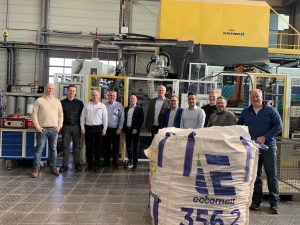It is no secret that President Donald Trump is taking an aggressive approach to trade. In September alone, the Trump Administration shelled out $4.4 billion in tariffs, a 50% increase from September of 2017. The increase came largely from the $1.4 billion in tariffs imposed on imports of foreign steel and aluminum from China, which it accused of intellectual property theft.
Numerous economists and industry analysts criticize the Trump administration for their tough stance on the international front. They argue that U.S. exports have suffered as countries are fighting back with tariffs of their own on American products such as soybeans, bourbon, and cheese. The shipments of products affected by the penalizing tariffs have declined by $2.5 billion (or 26%) since 2017. At the same time, products not subject to those tariffs remained the same.
There is also an overwhelming concern over the impact of tariffs on American businesses and consumers. For instance, the U.S. threatened to impose 25% tax on all imports of cars, trucks, SUVs, and auto parts over the summer. Industry analysts feared that the threat alone, along with the duties imposed on imported steel and aluminum, would have a negative impact on U.S. automakers and their customers. Their sentiments were shared by FIAT and GM who took a nosedive in profits and resorted to lowering their 2018 profit forecasts. It also translated into Americans paying between $1,400 and $7,000 more for a new car this year in comparison to last year. The fear of large layoffs and reduced manufacturing presence at home loomed as a result.
To date, there’s been no shortage of criticism and worry over the repercussions of the Trump administration’s trade tariffs. However, a new panel discussion has emerged among economists and trade associations. All three groups are arguing that there has been a positive impact – the aluminum tariffs are helping rebuild industries on the domestic front.
How Tariffs are Rebuilding the U.S. Aluminum Industry | Eccomelt 356.2 – Direct Substitute for A356.2
According to Robert E. Scott of Economic Policy Institute and the blog post published on The Hill, holiday season arrived early this year in many parts of the U.S. The aluminum and steel tariffs have revitalized local industries, with aluminum smelters and steel mills hiring and making new investments, he argues.
While critics claim the tariffs would result in job losses and would adversely affect the U.S. economy, a new report by the Economic Policy Institute paints a different picture. The report, which is an analysis of the current U.S. aluminum industry, shows increased U.S. aluminum production, rising employment and greater than expected demand. Since February, nearly 200,000 jobs have been created by the American manufacturing industry and another 3,000 jobs are expected to be created as a result of planned restarts and capacity expansions, the report forecasted.
Prior to the imposition of tariffs, research showed that American aluminum industry struggled to compete with excessive production in China, Russia, India and the Persian Gulf states. State-sponsored funding for these countries’ aluminum industries also put Americans at an unfair disadvantage. Smelters across the U.S. were forced to idle or shutter production. Between 2010 and 2017, 18 of America’s 23 domestic aluminum smelters shut down and approximately 13,000 U.S. jobs were eliminated. Imposing these trade tariffs was a necessity to prevent America’s aluminum sector from disappearing entirely and have helped thousands of workers that the industry employs, industry analysts argue.
How Recycled Aluminum Can Improve Shortfalls in Aluminum Supply | Recycled A356.2 | Substitute A356.2
While rebuilding the U.S. aluminum industry to improve the economy and to save it from extinction is important, we are forgetting one small but very important fact: Aluminum is easy to recycle, which gives it the potential to be a “green” resource. Not only that, aluminum can be indefinitely recycled. That means no matter how many times it is used and reprocessed it will never lose its quality if recycled wisely and correctly. There is no need to produce and manufacture only raw (primary) aluminum because there is plenty of recycled aluminum going around; a point that Eccomelt has stood by since its conception. Recycled aluminum can make as significant of a mark on the economy as raw aluminum if not more!
Eccomelt356.2 | Direct Substitute for A356.2 Ingot, Sow & T-bar
Alongside Alcan R&D, Eccomelt has developed a patented revolutionary process that produces a specification alloy from aluminum wheels at a lower cost than traditional methods and that meets that EPA definition of CLEAN CHARGE.
Eccomelt ships products to foundries within North America including the United States, Canada, and Mexico, and worldwide, such as France, Ireland, Italy, Serbia, and Spain. Our product is the material of choice for many consumers because it is chemically pure and environmentally-friendly. Its shredded form has achieved higher melting rates than Ingot, Sow or T-Bar. Environmental testing has also proven the process eliminates all coatings.
If you are an industry affected by the tariffs and proposed sanctions and looking for alternatives please give us a call toll free at 1-888-356-9557 or visit our website and fill out our contact form.



